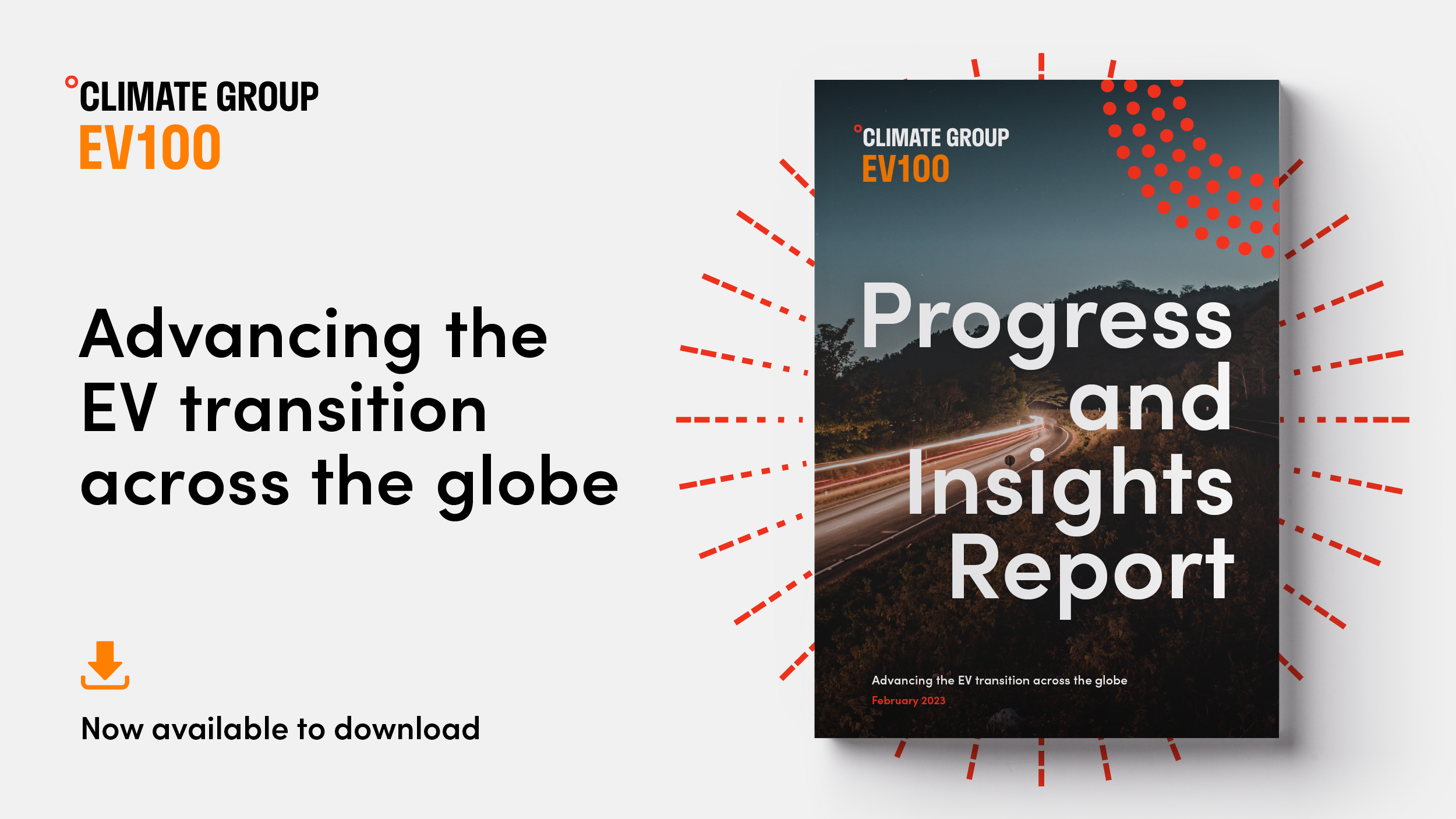The Progress and Insights Report 2023 demonstrates the progress EV100 members are making year-on-year in the net zero transport sector transition.
EV100 has grown to 127 members, who together have committed over 5.75 million vehicles to be electric by 2030 across 102 markets. Crucially, the number of electric vehicles (EVs) already in operation is growing, too. Over 400,000 EVs are now on the road across the globe, a 93% increase on last year’s figure.
Since EV100’s launch in 2017, the market has rapidly evolved. Latest figures for 2022 show that 10% of all new car sales were EVs, while manufacturers have made more than 300 different battery electric models available for purchase.
Importantly, governments are seeing the climate imperative for – and economic potential of – going electric. They’re showing leadership by setting clear timelines for the transition and establishing the policy instruments to achieve them. Almost 41% of the global passenger vehicle market is now covered by internal combustion engine phase-out dates or major national zero emission vehicle targets, including markets as diverse as the EU, the US, Canada, China, India, Chile and Vietnam.
Of course, more work needs to be done to build on this ambition and ensure the shift to zero emission road transport benefits all communities around the world. EV100 members are leading from the front, not just by signaling the way in their own operations, but by showing policymakers what is needed to secure their success: clear targets to accelerate vehicle supply, support schemes to bridge initial price gaps where necessary, and the rapid, co-ordinated roll-out of charging infrastructure.


